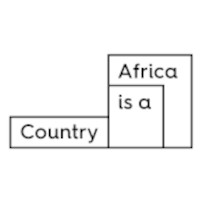Photo by sirine kh on Unsplash
- Saber Anmer writes that the proposed green hydrogen projects in Tunisia prioritize European energy needs over local sovereignty, sparking controversy.
By Saber Ammar published first by Africa Is A Country
MoU Agreements:
- On May 28, 2024, TotalEnergies, Eren Groupe, Verbund, and the Tunisian government signed a memorandum of understanding (MoU) for the “H2 Notos” project, which aims to produce 200,000 tons of green hydrogen annually for export to Central Europe, potentially scaling to one million tons per year.
- On May 31, 2024, another MoU was signed with ACWA to produce 600,000 tons of green hydrogen annually, also for export to Europe.
- Additional MoUs were signed on July 29, 2024, with foreign corporations from Britain, France, Belgium, and Germany.
Tunisia’s Ambitions: The Tunisian Hydrogen Strategy aims to position the country as a hub for green hydrogen production, with a goal to export six million tons annually by 2050. Despite its potential, Tunisia faces a 50% energy deficit as of 2022.
Local Concerns: Critics argue that: The focus on green hydrogen for export neglects Tunisia’s energy needs. and that the projects could negatively impact water resources, land access, and local communities. Economic gains for Tunisia may be limited while reinforcing unequal trade relationships.
Historical Context: The situation echoes past colonial exploitation, where European countries extract resources and wealth from Africa, as described by Walter Rodney in “How Europe Underdeveloped Africa.”
German Influence: Germany introduced the green hydrogen initiative to Tunisia and has been shaping the national hydrogen strategy through the German Agency for International Cooperation (GIZ).
Local Resistance: On April 24, 2024, a protest organized by various groups, including the Stop Pollution Movement, took place against the green hydrogen projects and German influence. Protestors called for a people-centric energy transition that prioritizes Tunisia’s needs.
Resource Concerns: The strategy plans to use 248 million cubic meters of desalinated water by 2050 and 500,000 hectares of land for hydrogen production, raising concerns about water scarcity and land grabbing.
Social Movements: Groups like the Stop Pollution Movement and the Tunisian Forum for Social and Economic Rights view the projects as another form of exploitation serving EU needs.
Legislative Developments: The Tunisian parliament is discussing a new draft law to encourage green hydrogen, which critics say favors foreign investors with tax incentives.
Call to Action: There is a pressing need for a Pan-African movement to prioritize local needs and work towards energy and food sovereignty, ensuring cheap green electricity for the 600 million Africans currently without access.






